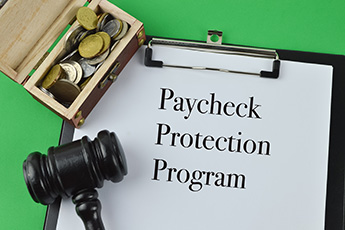Did you know that baby porcupines were called porcupettes? Even as babies, they can be prickly. Another area that could be prickly is PPP follow-up, including forgiveness and extensions.
As of August 8th, the SBA reported that over 5.2MM loans have been made through the Paycheck Protection Program (PPP). While bankers have worked hard to meet their customers' needs with these loans, more hard work is still ahead of them.
Somewhat lost in the chaos of the current COVID-19 pandemic is the fact that many lenders are also looking at renewals, extensions, and new loan requests from their borrowers.
The challenge during this period of uncertainty is to make sure that regardless of the loan type, bankers are diligent and direct with customers. To that end, consider doing a "deeper dive" by asking more detailed questions. Below are some of the questions and follow-up discussions that various lenders are having with their customers (so that the risk is properly identified and mitigated). Keep in mind that these are generic and may not apply for all loan types and this list is definitely not exhaustive.
- Lay of the land. What is the stay-at-home status in the state and municipality in which the subject property is located? Which tenants in the property have been deemed essential? Have any of the tenants received a PPP loan? Have any tenants closed, temporarily or permanently?
- Collections status. What is the current status of your lease/rent collections for the last few months? Are any tenants past due for base rent or common area maintenance (CAM) payments?
- Tenants' status. Have any tenants requested (or were they offered) rent deferrals, forgiveness, or lease re-negotiations? If so, what were the terms, (i.e., 3 to 6 month payment deferral, interest-only deferral, etc.)?
- Operating expenses. What effect has the pandemic had on your properties' operating expenses (i.e., increased costs for cleaning and maintaining common areas)?
- Income statements. Provide a year-end (YE) 2020 projected income statement considering projected decreased rental income and decreased net operating income. This is important since payment deferrals will be rolling off over the next few months. Provide a YE 2021 projected income statement too.
- Guarantors. All guarantors should provide a current personal financial statement, along with verification of current liquidity. They should also provide a detailed Real Estate Schedule showing all properties, any debt, and loan maturity dates, as well as an explanation as to how the pandemic has affected those properties now, and on an ongoing basis. A decline in other properties owned will have a diminishing effect on the guarantor's liquidity and overall cash flow.
We are all still adjusting to this crisis. But, we can ensure we have a better understanding of our customers' needs with a thorough discussion with them. These questions should pave the way for you.




